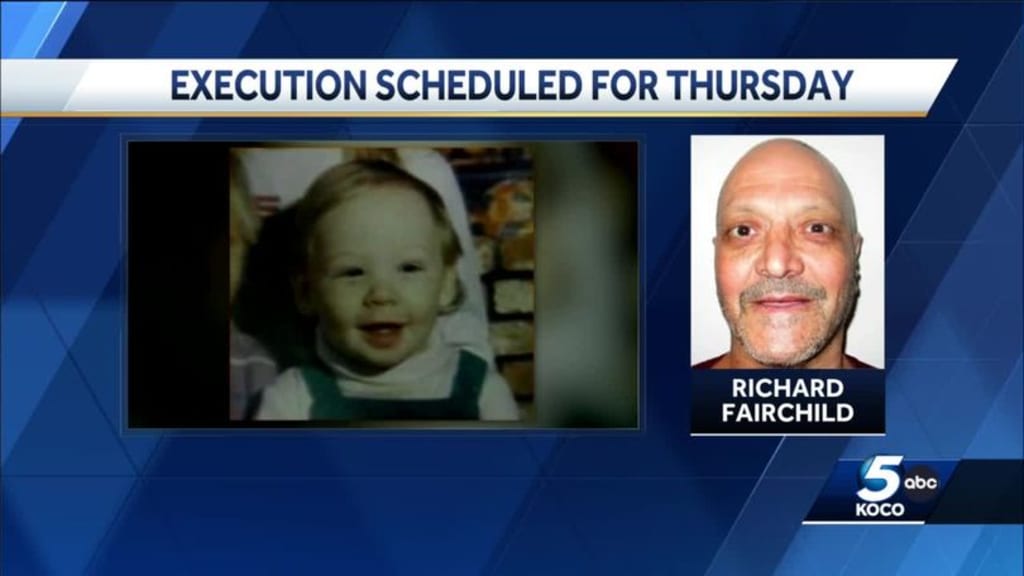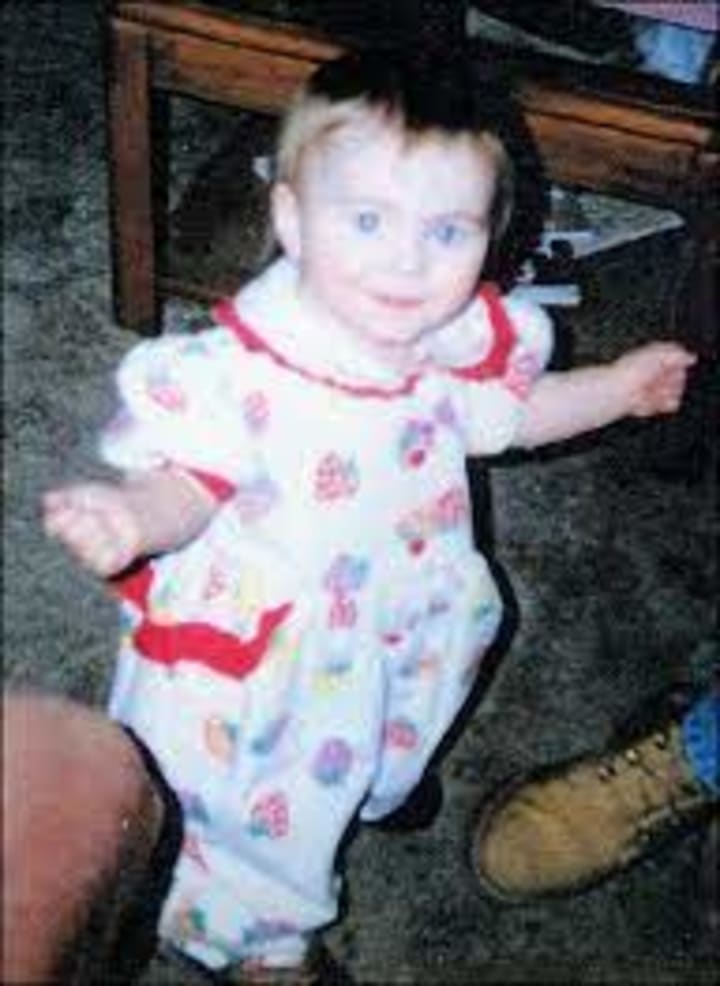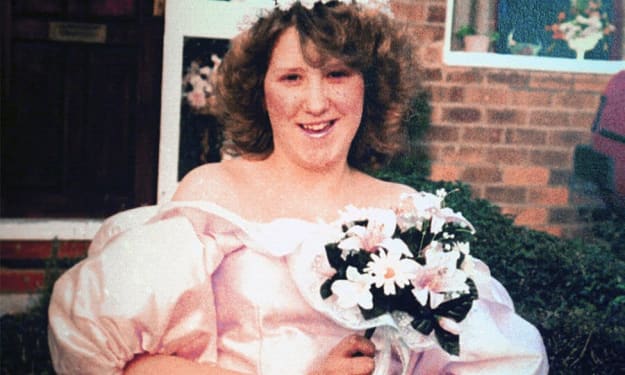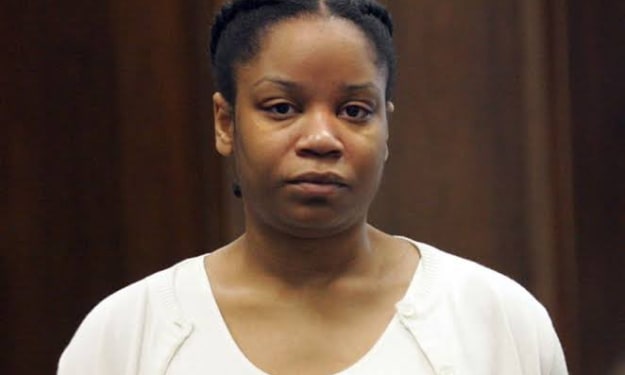Richard Fairchild Who murdered a 3-year-old to be executed on his 63rd birthday.
Fairchild has been on death row since 1996 after he was convicted for killing his girlfriend's 3-year-old son, Adam Broomhall, back in 1993

The Oklahoma Court of Criminal Appeals is being petitioned to halt the execution of convicted child murderer Richard Fairchild due to fresh concerns over his mental capacity.
Fairchild is scheduled to be executed on today, 17th Nov, his 63rd birthday, for the 1993 murder of Adam Broomhall, the 3-year-old son of his girlfriend.
His attorney, Emma Rolls, asked for the stay Wednesday after an investigator reported he "was completely out of touch with reality."
According to court documents, Fairchild drank all day with the boy's mother before the murder. When the youngster woke up crying later that night at his girlfriend's home in Del City, Fairchild began to beat him and then burned both sides of his body by forcing him against a furnace.
Later, Fairchild threw the 24-pound boy into a dining table, knocking him unconscious and ensuring he would never regain consciousness.

On November 14, 1993, it was concluded that the boy died from blunt force trauma to the brain, and he had sustained 26 separate blows to the body.
Richard Fairchild was denied clemency in Oklahoma in October.
In October, the Oklahoma Pardon and Parole Board ruled 4-1 to refuse clemency to Fairchild, despite his attorney's assertions that he sustained catastrophic brain damage throughout his lifetime, which, combined with his alcohol and drug abuse, contributed to his acts that night.
The state's attorneys offered a grim picture of that night's events.
"Fairchild was Adam's jury, judge and executioner," said Julie Pittman, who is Attorney General John O'Connor's general counsel. "(Adam's) crime? He wet the bed."
Fairchild did not come before the parole board, but the victim's uncle, Michael Hurst, gave a brief statement from the victim's grandmother, his late mother.
The letter pleaded, “I beg you, show no mercy to a man who could torture a child,”.
Hurst concluded his remarks by pleading with the parole board to "let our family heal."
Hurst told The Oklahoman after the vote in October that he believed the outcome would allow his family to move on nearly 30 years after his nephew's murder, but with a caveat.

"I would have preferred Adam to be here," said Hurst.
The parole board's judgment means that Governor Kevin Stitt cannot reduce Fairchild's death sentence to life in prison without the possibility of parole. In Oklahoma, a death row inmate's sentence can only be commuted if the board recommends clemency.
At 10 a.m., the execution by lethal injection will commence. Thursday in McAlester's Oklahoma State Penitentiary.
In asking for a stay, Fairchild's attorney pointed to the U.S. Supreme Court's 1986 landmark ruling on the mental state of death row inmates. The court concluded that the constitutional ban on cruel and unusual punishment forbids governments from imposing the death penalty on incompetent prisoners.
The assistant federal public defender told the court that "delaying Mr. Fairchild's execution for a period to allow for the appropriate determination of the claim of a mentally ill and incompetent man would not cause harm to the State."
Mark Jacobs, the investigator, stated in a written affidavit that Fairchild's "grasp of reality is slipping."
Jacobs is an investigator with the Oklahoma City office of the federal public defense. The investigator met Fairchild for the first time in 2009 and spent two hours with him on Monday.

The investigator wrote, "Richie informed us that he hears voices nearly constantly." "Richie's mental state has deteriorated to the point that I believe he does not comprehend why he is being executed."
According to the declaration, he believes he has millions of dollars in a bank and that his brother wants the money and has had his execution brought forward. A further illusion is that his brother is tormenting him in his cell with a "video voice recorder."
Wednesday, O'Connor responded by asking the court to deny a stay.
"Petitioner's last-minute, bare-bones competency claim is unworthy of further investigation, let alone a stay of execution," he told the court.
About the Creator
Rare Stories
Our goal is to give you stories that will have you hooked.
This is an extension of the Quora space: Rare Stories
X(formerly Twitter): Scarce Stories
Official Bookstore: davidkellertruecrime
Writers:
....xoxo






Comments (1)
What the Hell happened to all the comments? I was just reading them and I got redirected and when I came back here they were gone and even a part of the story dissapeared.